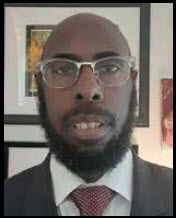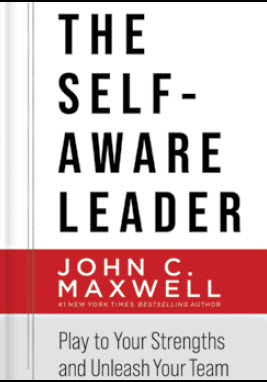 By: Eric Betts
By: Eric Betts
One of the important traits needed for effective leadership is self-awareness. In fact, leadership trainer and expert, John Maxwell, has written a book called The Self-Aware Leader. Maxwell states, concerning self-awareness, that “successful leadership learns how to conquer themselves before they learn how to conquer the world.” Conquering oneself means being confident and comfortable in one’s skin and understanding what makes their personality tick. Such leaders are able to ask on a regular basis, “Who am I?” and “What am I here for?” Recently, one of our clients asked if we would conduct a certificate course on personality and personal growth. There are many personality tests that are offered as a service for those seeking personal growth. One that comes highly recommended is called “16 Personalities.” The service is scientific. It breaks down your personality by percentages. Additionally, it provides insight and advice based on their findings. The science helps individuals in several areas relating to personality. It shows how the unique personality of the individual fits into personal relationships, career choices, relationship building, and parenting. This service is free and emails daily advice tailored to the individual personality type. I decided to take the survey in order to learn more about myself as a leader so I can learn how to conquer myself, as Maxwell suggested. I was amazed at how accurate the survey was. They ask about 20 questions and afterwards you receive the results. After taking the survey, I was able to understand many of the decisions and paths I had chosen from high school to shortly after college graduation. It helped me connect a lot of metaphorical dots and pieces of the puzzle. The results will show what drives or motivates your personality. Allow me to use myself as a case study of how effective the personality test can be. There are four steps I will outline of the beginning of my life’s path, and the personality test will show why those choices were made.
First, I was unsure of where I would attend college after high school graduation until a few weeks before enrolling. Upon arriving, I had not yet been accepted. My father was a bit frustrated with the suspense and spontaneity. I was confident that it would work out and indeed it did. Second, after graduating college, I moved to three different states: Pennsylvania, Massachusetts, and Nevada. The night after learning about an opportunity in Las Vegas, Nevada, I left, traveling across country from Massachusetts to Nevada. Third, once settled in Las Vegas, I received a sponsorship letter to attend a university in the Midwest. It would be a post-graduate opportunity where I would study for my M. Div. degree. I turned it down to work on a church plant project where I felt most confident. Fourth, after ten years in Las Vegas, I was attracted by a story about ministry in Washington D.C. Within six months, my family and I sold our possessions and moved across country from Las Vegas to Washington. We were unclear about which apartment we would stay, as we were not familiar with the area and how to navigate. I trusted that it would work out. We stayed in a temporary unit upon arrival, a little short of funds for a move-in date to lease an apartment. Over the weekend, we had the money and moved in. It would not be until years later that I would realize how amazingly adventurous the experience had been, and how close I was to things going in the other direction. Did I mention I married my wife of 21 years within one year of meeting? The test explains a lot about what drove me in certain ways. It explains what motivated me to travel to 13 different countries with few resources. The findings from this study also provides a list of strengths and how to be mindful of weaknesses. Find what you can observe about the four steps and the personality behind them.
I learned from the results of “16 Personalities” that I am an ISPF-A personality type. The “A” meaning adventurer. This type is one of two introverted types — ISPF-A being more independent, unpredictable, and assertive, while ISPF-T being more skeptical and collaborative. The ISPF-A personality says that I am an explorer and possess confident individualism. The service compares the two types with the lion and cat metaphor.
The lion or the housecat? It’s a close metaphor for the differences between Assertive and Turbulent Adventurer personalities. Assertive Adventurers look nearly like Extraverts in their robust expression of spontaneity and curiosity. They tend to roar when compared to their turbulent counterparts.
But housecats are not the opposite of lions. They are their more cautious cousins. In their quieter way, Turbulent Adventurers are just as attracted to the new, interesting, and beautiful as their Assertive counterparts.
This explains why although I am 40% extroverted and 60% introverted, I may appear to be extroverted or confident operating in my gifts, such as public speaking, teaching, or counseling.
One trait from the assertive adventurer type was as follows: When it comes to the career world, Adventurers need more than just a job. Wealth, power, structure, advancement, and security are all lesser goals to Adventurer personalities’ greatest need: creative freedom. Adventurers crave a tangible outlet for their imagination, a chance to express themselves artistically. This explains turning down the offer of sponsorship to the university as it was thought that what I was presently doing was more meaningful. The results say that Adventurer types live in the present. It says that Adventurers prefer to live in the moment, believing the here and now is what matters most.
Another trait suggests the following: This mindset can hold them back from many of their ideal careers, such as psychology, counseling, and teaching, which require long-term planning and often extensive certifications to get started. This aspect I was able to overcome, although many of my peers arrived in their ideal careers, while I engaged in more freelance work. The findings of “16 Personalities” says that concerning Adventurers, “the easier route revolves around freelance and consulting work in just about any industry that Adventurers enjoy. Whether organizing charity events, working with hospitals to make patients’ stays more pleasant, or laying stone to help make a house a home, Adventurers always seem to find a way to make the world a little more beautiful and exciting, and to make a living in the process.”
A trait that stands out in my early life story fits in with the research findings about Adventurers. “Adventurers aren’t well-known for their long-term focus…but rather their adaptability and spontaneity. They’ll use unconventional methods, sometimes risky ones, and existing rules are just someone else’s way of doing things. Still, Adventurers find a way to make things happen.”
The final trait to be singled out in this study is that Adventurers’ “sensitivity allows them to be great listeners…They also give their subordinates the freedom to do what needs to be done to solve what needs to be solved on any given day, and Adventurers are likely to dig into that work right alongside them. This gives Adventurer managers a marked style of inspiration and cooperation, and they’re usually well-liked.” I have been known to have the reputation of being a skilled listener. This is also connected with the findings that Adventurers “easily relate to others’ emotions, helping them to establish harmony and good will, and minimize conflict.”
This service has helped me to understand not only what drives my personality type, as well as why I have surrounded myself with certain personality types on my teams. Such tests clarify how to offset weaknesses and how to grow based on your own personality types. It provides a guide in order to be aware of how you are perceived, and how it affects others on your team. I encourage you to take this personality test so that you can grow in your area of expertise and learn to conquer yourself before conquering the world.
By: Eric Betts
Assistant Director, Curtis Coleman Center for Religious Studies and Ethics at Athens State University






